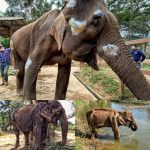In the Arms of Compassion: The Story of a Baby Elephant’s Grief and Healing
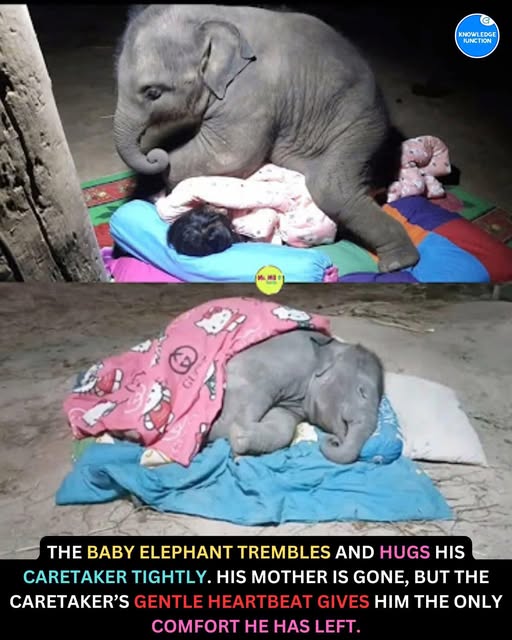
In the Arms of Compassion: The Story of a Baby Elephant’s Grief and Healing
In the quiet shade of a wildlife rescue center, a heartbreaking scene unfolds — one that captures the delicate boundary between loss and love. A baby elephant, barely tall enough to reach his caretaker’s chest, trembles as he presses tightly against the person holding him. His eyes are wide with fear, his ears drooping, his tiny trunk wrapped around a comforting arm. He is alone in the world. His mother — the one constant in his short life — is gone.
For an elephant calf, the bond with its mother is everything. From the moment of birth, she is protector, teacher, warmth, and home. Her scent, her voice, her heartbeat are the rhythm of his world. But in an instant, that rhythm has been broken. Whether through poaching, conflict, or natural loss, the result is the same: an orphaned calf, lost in a vast and frightening world he doesn’t yet understand.
The trauma of losing a mother affects baby elephants deeply. They grieve. They cry. They can even refuse food, lying listlessly in corners, hearts broken before they’ve fully learned to stand on their own. This baby, now held close by a human caretaker, is searching for something he no longer has — the familiar thump of his mother’s heartbeat, the soft rumble of her voice, the shelter of her towering presence. And in the chest of this human, he finds something almost familiar. A heartbeat. A kindness. A start.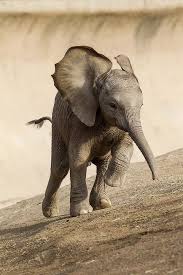
The caretaker does not rush the bond. There are no sudden movements, no forced gestures. Instead, there is patience. Gentle whispers. A hand that moves slowly. Bottles of milk, warm blankets, and hours spent simply being there. The human becomes a surrogate in the only way possible — not as a replacement, but as a gentle bridge between sorrow and survival. Day by day, the fear softens. The trembles fade. The baby begins to trust.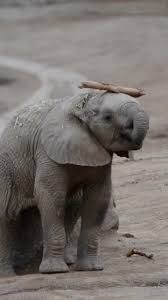
He starts to follow the caretaker, not just for food, but for comfort. He leans his head gently against their side. He nuzzles their hand with his trunk. And sometimes, when the pain creeps back in, he simply stands close and listens — not to words, but to the presence. The steady, calm presence of someone who will not leave him behind.
This tender relationship reminds us that animals are not emotionless beings. They feel fear. They mourn. They bond deeply. And they can also heal — not instantly, not without scars, but slowly and surely, when met with compassion. Love and empathy, even when coming from a different species, can help mend what’s been broken.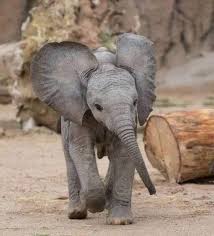
The baby elephant’s story is both heartbreaking and heartwarming. It is a powerful testament to the emotional lives of animals and the incredible healing power of kindness. In a world so often marked by cruelty, it is these small, silent moments of connection that remind us what it means to be truly human — and deeply humane.









